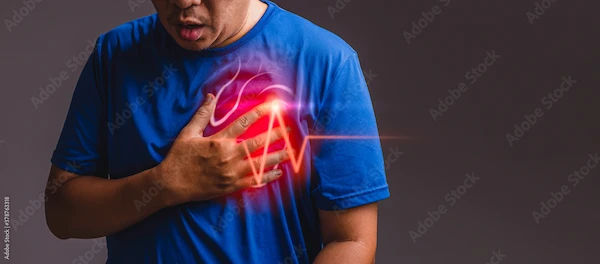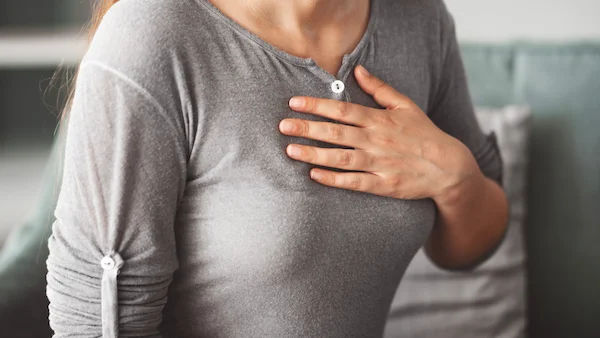- Female
- 48 Years
- 29/01/2025
Can left ventricular diastolic dysfunction be reversed? I'm really curious to know what methods or treatments are available to possibly improve this condition.
Answered by 1 Apollo Doctors
Left ventricular diastolic dysfunction can be managed and sometimes improved with lifestyle changes and medications. Some ways to help reverse left ventricular diastolic dysfunction include: - ACE inhibitors like Enalapril (5-20 mg once daily) - ARBs like Losartan (25-100 mg once daily) - Beta blockers like Metoprolol (25-100 mg once daily) - Calcium channel blockers like Amlodipine (5-10 mg once daily) - Diuretics like Furosemide (20-80 mg once daily) It is important to consult with your healthcare provider to determine the best treatment plan for your specific condition.
Dr. Shubham Suggests...
Consult a Cardiologist
Answered 04/07/2025
0
0

Ask Apollo
AI powered Health Chatbot
-
Understanding Left Ventricular Diastolic Dysfunction (LVDD)
- LVDD affects the heart's ability to relax and fill properly. Recognizing symptoms like shortness of breath and fatigue is crucial.
-
Possibility of Reversing LVDD
- Reversibility depends on factors like underlying causes and severity. Improvement is possible with appropriate management.
-
Lifestyle Modifications
- Focus on a heart-healthy diet, regular exercise, and weight management. Control blood pressure and blood sugar levels.
-
Medical Treatments
- Medications such as ACE inhibitors, ARBs, diuretics, and beta-blockers can help improve heart function and reduce symptoms.
-
Managing Underlying Conditions
- Address hypertension, diabetes, and coronary artery disease. Regular follow-ups with a cardiologist are essential.
-
Specialized Care and Monitoring
- Echocardiograms and other tests track progress. Consult a specialist for advanced therapies if needed.
-
Emotional and Supportive Care
- Maintain mental well-being and seek support. Utilize resources for patient education and support groups.
Recommended next steps
Consult a Cardiologist
Answered 20/08/2025
0
0

More Cardiology Health Queries
View allI've been wondering if it's safe for someone with a stent in their main heart artery to laugh a lot. Because laughing can increase blood flow, is there a chance it could lead to a higher risk of blood clotting in the artery?
Laughing is generally considered beneficial for overall health as it can reduce stress and improve mood. In the case of a patient with a stent in the main artery of the heart, laughing in moderation should not pose a significant risk of blood clotting. However, it is important for patients with a stent to follow their doctor's recommendations for medication and lifestyle modifications to prevent complications. If you have any concerns about how laughing may affect your heart health, it is best to discuss them with your healthcare provider.
Answered by 1 Apollo Doctors
Is mitral regurgitation something that can be cured? I'm having a really hard time with daily activities because of symptoms like chest pain, feeling like I might faint, lightheadedness, and shortness of breath. What should I do? Can you help me figure this out?
Mitral regurgitation (MR) is a condition where the heart's mitral valve does not close tightly, causing blood to flow backward in the heart. Treatment for MR depends on the severity of the condition. In your case, with symptoms like chest pain, near fainting, lightheadedness, and shortness of breath, it is important to seek medical attention promptly. You may be prescribed medications such as Lisinopril (brand name: Zestril) to help reduce the workload on your heart and manage symptoms. Additionally, you may be advised to take Furosemide (brand name: Lasix) to reduce fluid buildup in your body and relieve symptoms like shortness of breath. In severe cases of MR, surgical intervention may be necessary to repair or replace the mitral valve. However, the treatment plan will be determined based on a thorough evaluation by a healthcare professional. It is crucial to follow their recommendations closely for optimal management of your condition.
Answered by 1 Apollo Doctors
I'm really worried about my wife's ECG results. It showed a Poor R Wave from V1 to V3. Could this mean a serious heart problem? What should we do next?
It is normal finding .
Answered by 1 Apollo Doctors
Disclaimer: Answers on Apollo 247 are not intended to replace your doctor advice. Always seek help of a professional doctor in case of an medical emergency or ailment.



